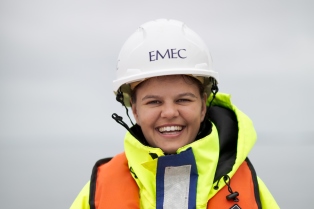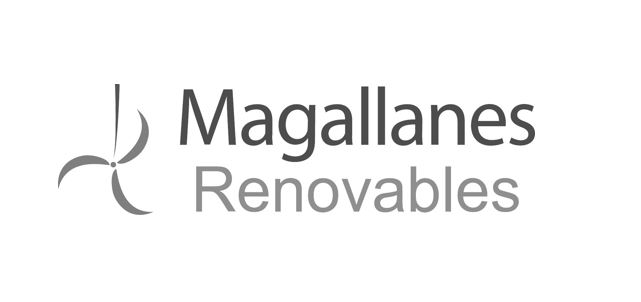PhD case study – Ana Couto
 Name: Ana Sofia Silva Couto
Name: Ana Sofia Silva Couto
Start year: 2017
Final year: 2022
PHD overview
PhD
Determining the ecology and physics of tidal-stream habitats (DEPTH): Uncovering the drivers of animal behaviour and distribution and how to best monitor their interactions with marine renewable developments.
Funded / supported by
Funded through Marine Alliance for Science and Technology for Scotland (MAST)
Funders/partners:
- University of Aberdeen
- EMEC
- Marine Scotland
- The Scottish Association for Marine Science
Summary of PhD
The main goals of the PhD is to develop cost-effective guidelines for environmental monitoring around tidal devices. In order to achieve this, we first need to understand how different species use tidal areas, the drivers behind their behaviour and how such drivers are influenced by the presence of the device.
Outcomes / findings
By combining data on flow velocity, fish (prey) presence/absence and number of seabirds collected simultaneously around Stroma island, we were able to detect a positive relationship between the number of pelagic foraging seabirds (razorbill, puffins and guillemots) and fish school presence, and a positive effect of water velocity when between 1.5 and 3 m/s. This suggests that the combination of fish school present in the area and fast flows translates into patches of prey close to the surface during such periods and therefore available to pelagic foraging seabirds that tend to target single individuals closer to the surface.
To test such hypothesis, we looked into how fish school morphology changes with water velocity and turbulent kinetic energy (TKE). Given that in tidal stream areas TKE and flow velocity are intrinsically linked, to fully understand the drivers of fish school behaviour we need to assess the effect of both variables. The need to correctly describe the causal effects on fish school behaviour are elevated as the magnitude of the effect of tidal devices on TKE and velocity can vary. For this a mediation analysis was used as a modelling framework, incorporating the indirect effect of velocity on the relationship between TKE and fish school morphology. In this way, we were able to disentangle the direct effects of velocity from the indirect effects mediated by TKE.
The results from the previous two studies highlights how hydrodynamics influence both prey and predator behaviour, and the need to include such variables when assessing the impacts of tidal devices. We hypothesise that by including such variables, the uncertainty around the effect of devices will be reduced and therefore less surveys are required to detect any effect. To test this, we run some simulations of two scenarios: one including only presence/absence to explain changes in seabird number and a second where in addition to device presence absence, velocity and prey presence were also included. Results showed that incorporating hydrodynamic and prey covariates into the models not only increases the power to detect small changes in the number of seabirds due to the presence of devices but also reduced the number the surveys required to achieve similar power.
Why?
Why is this research of interest to you?
I have always been keen on understanding the whys behind marine animals behaviour.
Testimonial
“Doing this PhD pushed me out of my comfort zone. Working on such a multi-disciplinary project meant that I had to learn a vast number of new data collection and data processing methods, which made me grow as a researcher. Moreover, being involved with EMEC through the projects made me understand what the industry needs and the limitation (e.g. budgets, timeframes) which meant that I could incorporate such knowledge into my research and to develop realistic recommendations.”





